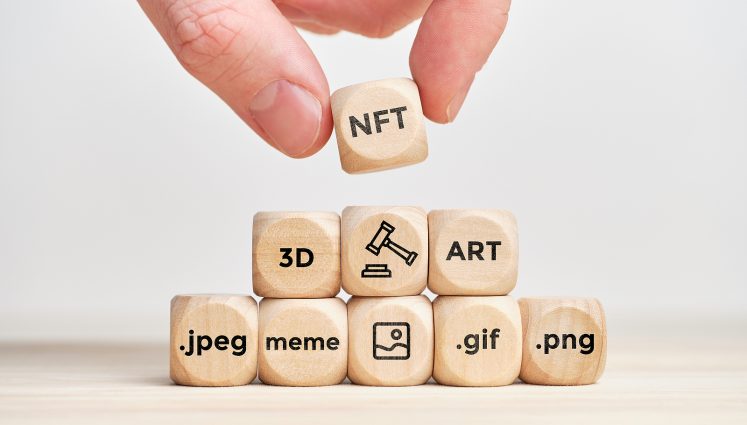
So What’s an NFT Anyway?
By Distributel
You’ve seen NFTs in the news, but what are they? And why are sports fans going nuts for them? Here’s everything you need to know about NFTs.
What Does NFT Stand For?
Non-fungible token. Fungible assets are things that can be exchanged for identical things. If I lose a loonie you gave me to buy ice cream, I can still buy ice cream with a loonie of my own—or any loonie. They’re exchangeable, ergo they’re fungible.
Something non-fungible means it can’t be exchanged. If I have a rare hockey card, that’s a non-fungible item in that it isn’t easily valued or exchanged.
So, a non-fungible token is a one-of-a-kind token.
But What Do NFTs Do?
Up until NFTs, it was hard to say or prove who owned a digital thing, like a picture or video. Who owns this Nyan Cat gif, given that it can be reposted everywhere? Technically, the creator owns it, but to prove it he’d need to go to a court of law.
NFTs make owning digital things easier. Basically, you can buy a non-fungible token that says you own the Nyan Cat gif, and the software that powers NFTs proves that you’re the actual owner.
How Do NFTs Work?
Blockchain. The same technology that makes cryptocurrency possible also makes NFTs possible. Blockchain can verify your token against the public ledger of tokens.
So Are NFTs Like Crypto?
No. Though NFTs use blockchain, they are not cryptocurrency. They are investments, though.
What Kinds of NFTs Can I Buy?
Well, the aforementioned Nyan Cat gif sold for nearly $600k. Jack Dorsey sold his first tweet as an NFT for $2.9 million. Digital artist Beeple set art world records with a nearly $70 million sale. The NBA is selling short clips of players as NFTs, and they’ve generated more than $200 million in sales. Not bad, considering they sell packs of clips for $9 each.
Are They Like Sports Cards?
The NBA thinks so, and it looks like other sports leagues will follow suit. In fact, Matt Tkachuk of the Calgary Flames became the first NHLer to sell an NFT, which raised more than twenty grand for a children’s hospital. Presumably, once more players (or the league itself) start offing more NFTs, there will be cheaper ones on the market.
Will More Sports NFTs Hit the Market?
Yes. Given how hot the NFT market is, there’s no doubt other companies and sports figures will get in on it. There’s an argument for the NHL to get in on the action. Brandon Banks has become the first CFL player to launch an NFT. Ubisoft has launched an NFT linked to fantasy football. Series A football has an NFT. Tom Brady has founded an NFT company, although it won’t just be about American football—it’s supposed to include pop culture figures, athletes, fashion, entertainment, and whatnot. Topps, the baseball card company, is also planning to release NFTs.
So Where’s This Going?
Basically, if you want one more way of owning sports stuff, you can buy an NFT and add digital sports stuff to your collection of sports cards, posters, and Funko Pops. The difference is that NFTs are digital, easy to prove that they’re yours, and very hot right now.
